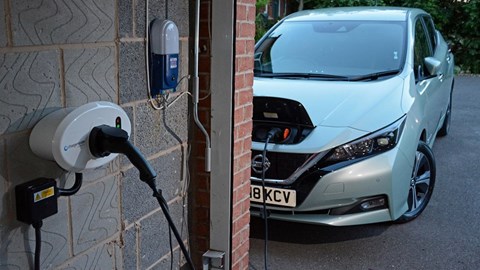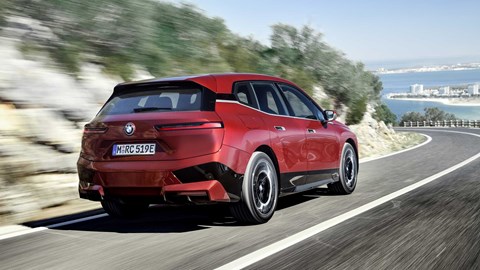► Electric car battery life explained
► Is it something to be concerned about?
► What is the expected life of an electric car battery?
Range is already a concern for prospective EV owners, and battery degradation will be an equally important factor – particularly as the used electric car market expands. In the same way your mobile phone’s battery may not hold as much charge as it used to, the same thing can happen to EVs. And worryingly, that reduction in capacity means a reduction in overall range.
In this guide we’ll help you to understand the battery lifespan of an electric car, how much degradation you should expect, and how to keep battery-powered cars performing at their best.

What batteries do electric cars use?
Full EVs use numerous clusters of lithium-ion batteries to store energy. These are similar to batteries used in laptops and mobile phones, and they’re ideal because they are quick to charge, efficiently store energy and can go through thousands of charging cycles while still holding charge.
Electric car batteries: everything you need to know
The Best Car Battery Chargers
Why do EV batteries degrade over time?
Over time these battery packs become less efficient in the same way a mobile phone does. Batteries degrade over time as they’re charged and discharged and won’t hold the same capacity as when they’re new.
However, because of advancements in battery technology and the number of battery cells in a car’s battery pack, the batteries in modern EVs should still have a good capacity even after years of use. There are plenty of older EVs still on the road that are in fine order after thousands of miles and years of battery degradation. So while a decade-old phone will have to be perpetually plugged in to work, a decade-old EV will still offer an acceptable range.
We drive the 100,000-mile old Tesla

Are electric car batteries covered under warranty?
The good news is that electric cars come with long battery warranties, guaranteeing an acceptable battery capacity after seven or eight years of use. Most manufacturers guarantee that your battery will retain at least 70% of its original capacity.
We’ve made a comprehensive guide of what each EV manufacturer offers:
- Audi Eight years/100,000 miles
- BMW Eight years/100,000 miles
- Honda Eight years/100,000 miles
- Hyundai Eight years/125,000 miles
- Kia Seven years/100,000 miles
- Mercedes Eight years/100,000 miles
- MG Seven years/80000 miles
- Jaguar Eight years/100,000 miles
- Nissan Eight years/100,000 miles
- Polestar Eight years/100,000 miles
- Porsche Eight years/100,000 miles
- Renault Eight years/100,000 miles
- Seat Eight years/100,000 miles
- Smart Eight years/62500 miles
- Tesla Eight years/120,000 miles (150,000 miles for the Model S and Model X)
- VW Eight years/100,000 miles
- Volvo Eight years/ 100,000 miles

While a potential loss of 30% range may sound devastating, this is a worst-case scenario and there are many high-mileage EVs still able to hold a decent charge. Isobel Sheldon OBE, chief strategy officer of Britishvolt, says that modern EV battery packs are designed to last up to 12 years and 1500-2000 charge cycles, making them ideal for most commuters. And once these batteries do become degraded, they have a second life as storage for renewable energy.
Prices for secondhand EVs have been increasing in previous years as concerns about battery degradation are revealed to have been overblown.
Further electric car reading
Cheapest electric cars 2021: affordable EVs
Future electric cars: EVs launching in 2021 and beyond
The longest range electric cars of 2021: new EVs with the most charge
Does rapid charging affect your battery life?
You’ve probably heard of rapid charging and how it can cut charging times substantially. It uses direct current (DC) to charge your batteries quicker so you don’t have to wait around for your batteries to charge. The problem with fast charging is that it speeds up degradation of batteries; the greater levels of heat produced during rapid charging will eventually damage the batteries. Rapid charging may save you an hour browsing Waterstones at a service station but can cost you range in the long run.
What else can affect an electric car battery life?
One of the quickest ways to degrade a battery's capacity relates to charging. If you constantly drain the battery and then charge it to 100% it can contribute to the degradation of the battery. The same is true if you allow your battery to go completely flat. The good news is that most manufacturers have designed their systems so they will not charge to 100%, typically charging to 85% capacity to avoid degradation.
Also, how you drive can affect how quickly your batteries degrade. EVs may have great launch-control party tricks and insane acceleration stats but doing this too much can contribute to quicker battery wear. So, before you do Ludicrous mode starts at every set of traffic lights, remember that not only does it drain your battery, it also speeds up battery degradation.
Is battery degradation a concern for you? Be sure to let us know in the comments.